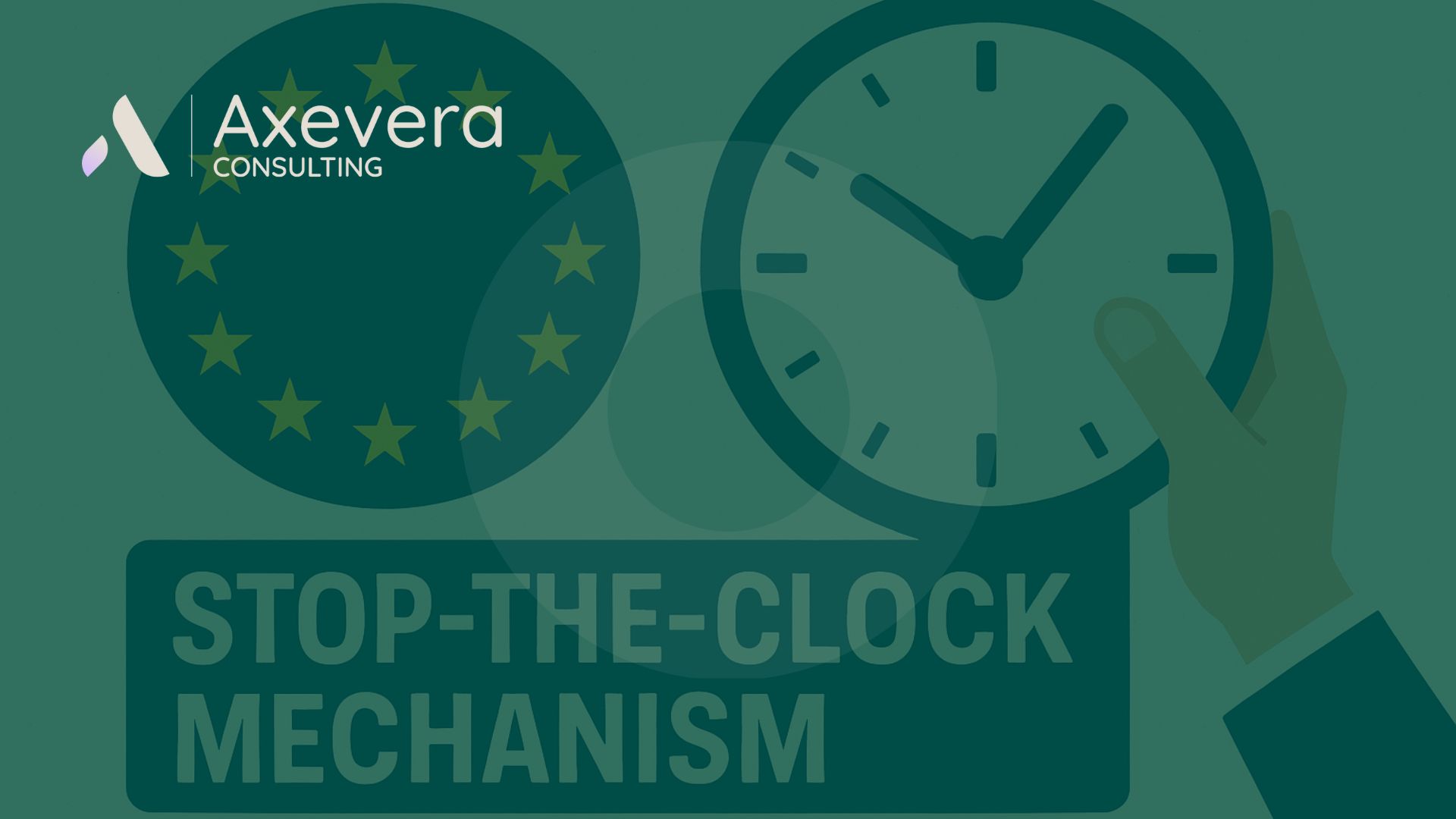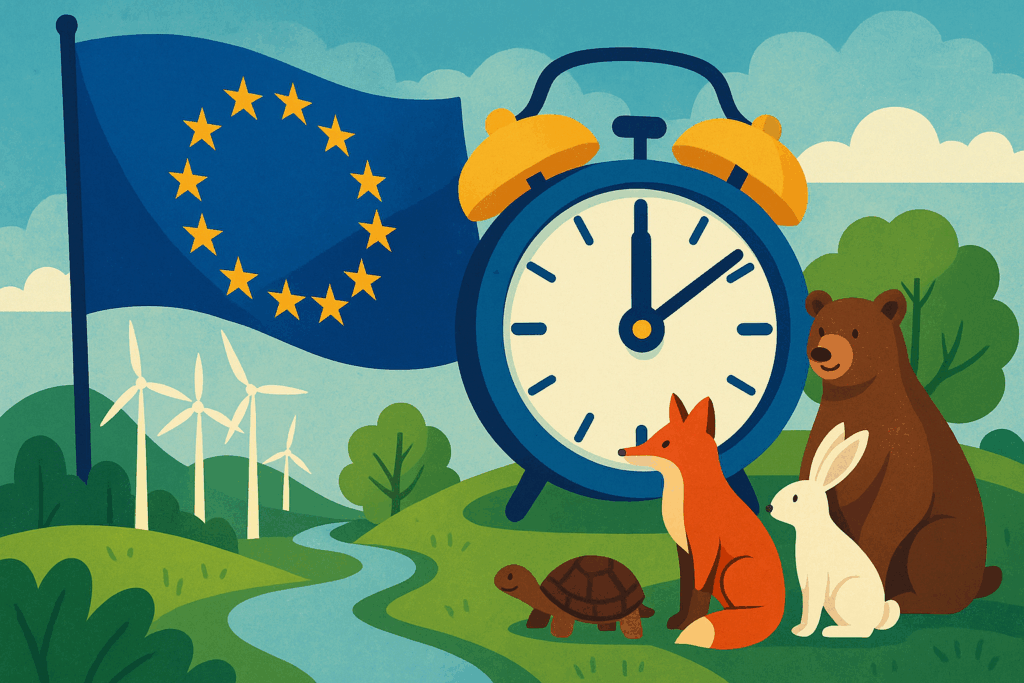
On April 14, 2025, the Council of the European Union officially approved the “Stop-the-Clock” mechanism, part of the broader “Omnibus I” package aimed at simplifying European legislation in sustainability. This initiative, which postpones the application of the Corporate Sustainability Reporting Directive (CSRD) and the Corporate Sustainability Due Diligence Directive (CSDDD), reflects efforts to enhance EU competitiveness by reducing administrative burdens for businesses.
The fast-track adoption of this directive responds to calls from several member states, including France, aligning with the goals of the Business in Europe: Framework for Strategic Autonomy (BEFSA). By delaying sustainability reporting obligations, EU institutions aim to provide legal clarity and breathing space for companies adapting to new regulations.

What the “Stop-the-Clock” Directive Means
The directive introduces key postponements:
- A two-year delay in the application of CSRD requirements for large companies that have not yet started reporting, as well as listed small and medium enterprises (SMEs).
- A one-year extension for the transposition deadline and first application phase of the CSDDD, initially targeting the largest corporations.
The legislative act will be published in the Official Journal of the EU and will enter into force the day following its publication. Member states must transpose it into national legislation by December 31, 2025.
A Broader Context: Simplification Versus Sustainability
This decision emerges against a backdrop of growing concerns about Europe’s competitiveness. The European Council’s calls in late 2024 and early 2025, reinforced by reports from Enrico Letta and Mario Draghi, emphasized the urgent need for streamlined regulatory frameworks to support businesses, particularly SMEs.
However, while the simplification of regulations might ease operational pressures, it simultaneously postpones critical progress towards sustainable business practices. The CSRD and CSDDD are not mere administrative exercises. They represent Europe’s ambition to:
- Foster markets where responsible, sustainable businesses can thrive.
- Promote innovation and a shift towards a circular economy.
- Strengthen Europe’s strategic autonomy in energy, technology, and manufacturing.
Risks and Opportunities in Delaying Sustainability Efforts
While boosting competitiveness is vital, delaying sustainability initiatives risks sending the wrong message about Europe’s priorities. Sustainability today is not optional; it is a core requirement for a resilient, future-proof economy. Postponements may:
- Undermine Europe’s ability to set global standards for responsible business conduct.
- Delay necessary protections for human rights, environmental stewardship, and fair labor practices.
- Erode public trust in Europe’s commitment to a just and green transition.
Europe’s Critical Juncture
Europe faces a defining choice: to lead in sustainability and innovation or to fall behind in a rapidly changing global landscape. The decisions made now will shape Europe’s economic sovereignty, environmental resilience, and global relevance.
Key actions moving forward include:
- Maintaining pressure on policymakers to strengthen sustainability frameworks when they return for implementation.
- Engaging businesses, civil society, and governments to build broad coalitions in favor of sustainable development.
- Ensuring transparency and accountability throughout the legislative process.
While the “Stop-the-Clock” mechanism buys time, it also imposes a responsibility. Europe must use this pause not to retreat from sustainability commitments, but to prepare more robust, effective, and ambitious frameworks for the future.
AI – generated image.





